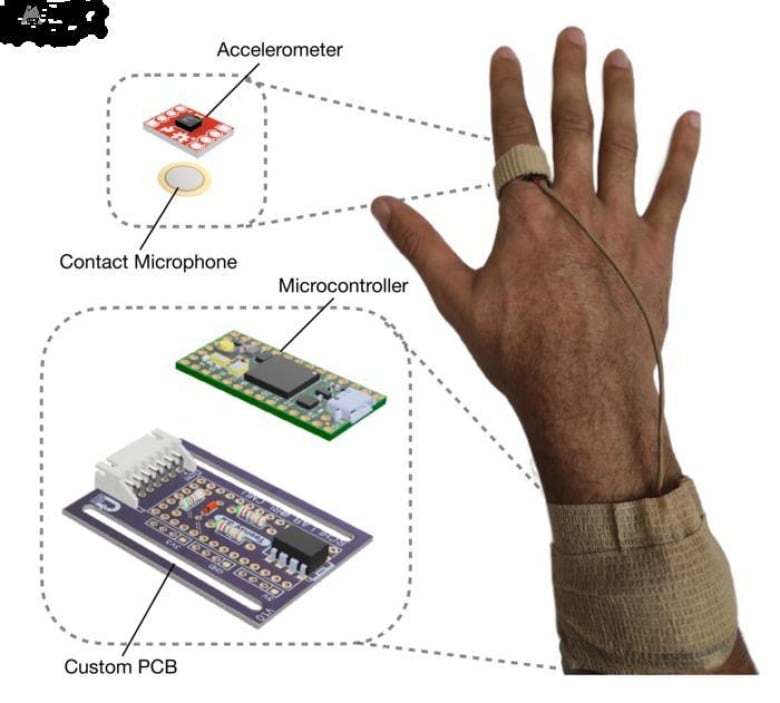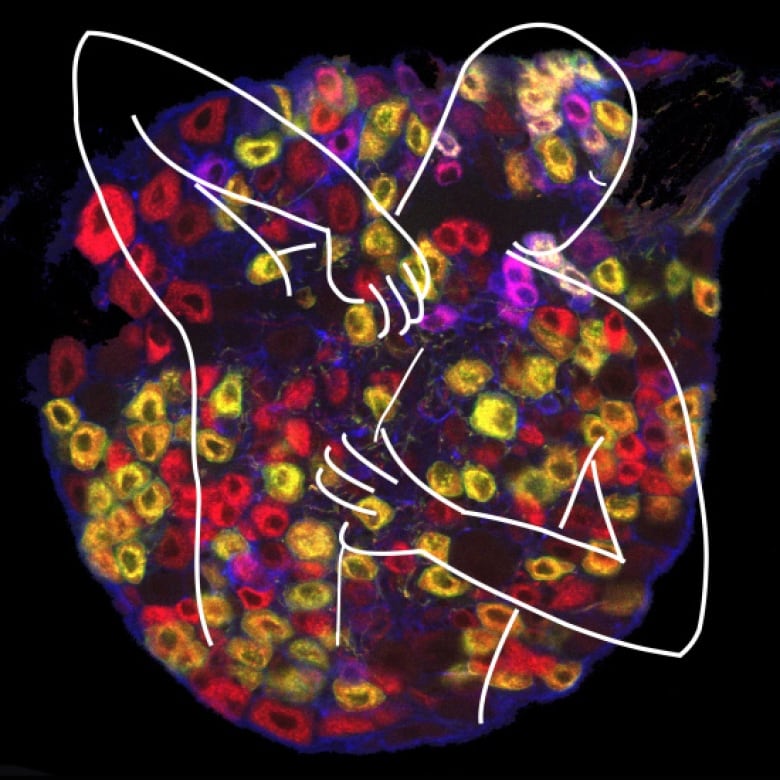This story is part of CBC Health’s Second Opinion, a weekly analysis of health and medical science news emailed to subscribers on Saturday mornings. If you haven’t subscribed yet, you can do that by clicking here.
Candice Coghlan spent much of her time in high school missing class after scratching large areas of her legs, back and scalp, without knowing the itching was due to a silent disease.
When Coghlan returned home to Waterloo during her second year of university, she’d lost weight on top of the skin issues. Hours after blood was drawn, the lab called telling her to go to the emergency department immediately.
Coghlan, now 38, was told she was in end-stage kidney failure.
Looking back, the itching she thought was from ordinary psoriasis was actually a clue.
“With my failed kidneys, it was actually the toxins trying to escape through my skin because my kidneys could no longer process the toxins, causing extreme itchiness,” Coghlan said.
She was on dialysis for more than a year. In September 2009, her mother donated a kidney to her.
“It was by day two, I would say, of having my kidney transplant that I realized I was no longer itchy,” she recalled.

Chronic itching can be a sign of a deep, underlying problem like liver or kidney disease, as it was for Coghlan.
But even when the cause is more benign, which is more common, the itching itself can have a major impact on someone’s quality of life, say dermatologists, and it’s not well understood.
Why is itching contagious? Why do we keep scratching ourselves, beyond when it helps? Scientists are still unravelling the head-scratcher of itching — from how hard we scratch the skin to neurons in the brain that could explain what’s going on.
Common ailments: eczema and dry skin
Dr. Rachel Asiniwasis, a dermatologist based in Regina, said atopic dermatitis — more commonly called eczema — tops the list of what she treats in her office.
The itching can be as harmful to patients as chronic pain on a mental health level, she said.
“I feel like it’s a condition that’s often misunderstood or dismissed as just a skin problem,” Asiniwasis said.

Many with chronic itch have hallmark scratches on a large surface of the skin, she said. The flesh can also ooze and swell with open sores, increasing the risk for infection.
“I spend a lot of my time counselling about moisturizing and lifestyle,” Asiniwasis said. “I call it the diabetes of dermatology because it’s common.”
During winter when indoor heating tends to dry out the air, people often scratch their skin more.
In severe eczema, the skin may respond to scratching by thickening up, like leathery, elephant skin, Asiniwasis tells her patients.
Asiniwasis has received funding from pharmaceutical makers in the field of atopic dermatitis.
How hard are you scratching?
Akhil Padmanabha, a PhD student at Carnegie Mellon University in Pittsburgh, faced itching from eczema since birth. While it made him uncomfortable, the skin condition also inspired his life’s work.
In high school, Padmanabha said he went through several health challenges, including being hospitalized twice due to the eczema and side-effects from topical steroids, which can include thinning of the skin.

When Padmanabha started his doctoral work on sensors in robotics, he stumbled on a paper about tracking scratch behaviours, leading him to search for a way to measure it.
Padmanabha said the intensity of stratching is an important metric for how much an itch is disrupting someone’s life, but researchers haven’t looked at it much.
For instance, two individuals can spend the same amount of time scratching with different degrees of damage to the skin. Having an objective measure of scratching intensity could inform doctors on whether a treatment is working or not, he said.
“What we did is we used this pressure-sensitive tablet to basically measure the force and intensity of someone’s scratch on it,” he said.
As you scratch, Padmanabha said, the friction between your nail and skin causes vibrations that travel through your fingers. In his 2023 prototype, a ring device consisting of two sensors is placed on one of the scratching fingers to measure high-frequency vibrations and accelerations of the finger and arm during the scratching motion.

Padmanabha hopes one day the device will help patients and doctors to better inform treatment plans.
Until then, Padmanabha is trying to subjectively figure out why his own symptoms fluctuate as the weather, diet and other factors change.
What’s behind contagious itching?
Medical researchers are finding clues to other key mysteries of itch, like contagiousness. Just seeing someone scratching can be enough to trigger the same behaviour in people.
Researcher Alexandru Papoiu worked with dermatologist Gil Yosipovitch at Wake Forest University Winston-Salem, N.C., on a contagiousness experiment.
Itch “is physiologically wired in our neurons, from the skin to the spinal cord to the brain,” Papoiu said.
But what’s happening in the brain to transmit itch remains an enigma, he said.
Histamine can trigger nerve endings in skin for an itch sensation. But in the clinic, most patients with itch don’t respond to antihistamine.
Back in 2011, Papoiu and his team used histamine to compare 14 healthy subjects, who received histamine or a saline control on their forearm, to 11 patients who had eczema. All study participants were monitored as they watched short video clips of people scratching or just relaxing.
Those with the skin condition had a higher itch intensity and scratched more frequently while watching the videos of other subjects scratching. What’s more, they scratched widely all over their own body after watching the clip, instead of just where the person in the video targeted.
Papoiu said they tried to coin a term, pruricebo, similar to placebo or sugar pill, for this unique effect that can be triggered by seeing someone else scratch.

It even seems to happen with images suggesting itch — like parasites or insects crawling on skin.
“It’s not necessarily that you see somebody scratching or itching,” Papoiu said. “It is more subtle because the brain actually has to interpret that image to suggest something to you.”
Scientists have a few lines of thinking about what might be behind contagious itch.
The starting point is that both itch and pain seem to be conducted to the brain through the same pathways.
Papoiu suggested that while both sensations are sent by the same nerve fibres and activate the same parts of the brain, the signals may be coded differently. He compared it to the varying signals of FM and AM radio. The brain also pinpoints subtle differences in the frequency of signals and interprets each as pain or itch.
Scientists say our brains might distinguish the nuisance of itch from the seriousness of pain that warns something is wrong.
Understanding more about how could help explain the engima of cases like a woman, M, whose scalp remained itchy even after neurosurgeons cut the main nerve to the area.



